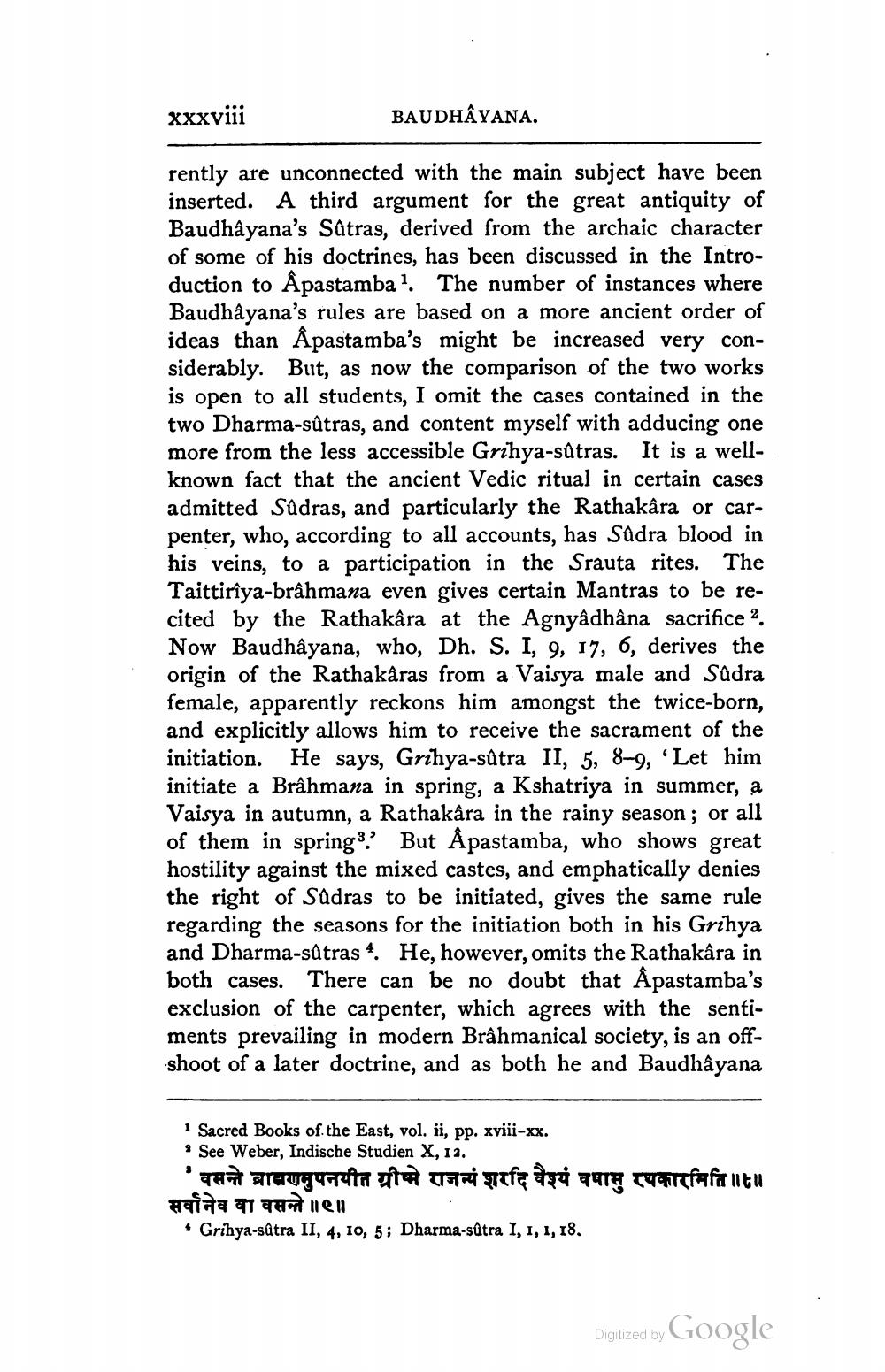________________
xxxviii
BAUDHAYANA.
rently are unconnected with the main subject have been inserted. A third argument for the great antiquity of Baudhayana's Satras, derived from the archaic character of some of his doctrines, has been discussed in the Introduction to Åpastamba'. The number of instances where Baudhayana's rules are based on a more ancient order of ideas than Åpastamba's might be increased very considerably. But, as now the comparison of the two works is open to all students, I omit the cases contained in the two Dharma-sútras, and content myself with adducing one more from the less accessible Grihya-sútras. It is a wellknown fact that the ancient Vedic ritual in certain cases admitted Sadras, and particularly the Rathakâra or carpenter, who, according to all accounts, has Sadra blood in his veins, to a participation in the Srauta rites. The Taittirîya-brâhmana even gives certain Mantras to be recited by the Rathakâra at the Agnyâdhâna sacrifice 2. Now Baudhâyana, who, Dh. S. I, 9, 17, 6, derives the origin of the Rathakâras from a Vaisya male and Sudra female, apparently reckons him amongst the twice-born, and explicitly allows him to receive the sacrament of the initiation. He says, Grihya-sútra II, 5, 8-9, 'Let him initiate a Brâhmana in spring, a Kshatriya in summer, a Vaisya in autumn, a Rathakâra in the rainy season; or all of them in spring3' But Åpastamba, who shows great hostility against the mixed castes, and emphatically denies the right of Sadras to be initiated, gives the same rule regarding the seasons for the initiation both in his Grihya and Dharma-sůtras 4. He, however, omits the Rathakâra in both cases. There can be no doubt that Åpastamba's exclusion of the carpenter, which agrees with the sentiments prevailing in modern Brâhmanical society, is an offshoot of a later doctrine, and as both he and Baudhầyana
1 Sacred Books of the East, vol. ii, pp. xviii-xx. • See Weber, Indische Studien X, 12. 'वसने ब्रामणमुपनयीत ग्रीष्मे राजन्यं शरदि वैश्यं वषामु रथकारमिति ॥६॥ Hafaa 7 Thont lieu
Grihya-sútra II, 4, 10, 5; Dharma-sútra I, 1, 1, 18.
Digitized by Google




